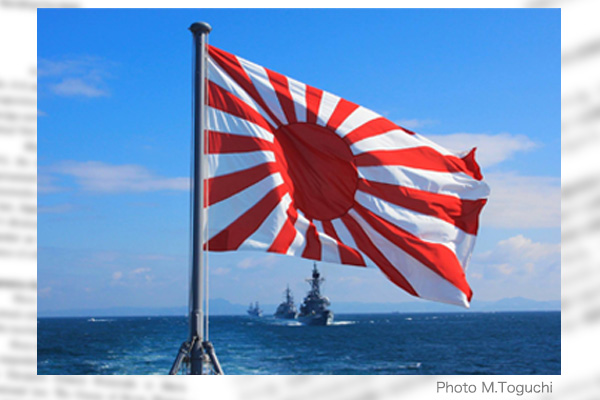On July 9, U.S. Joint Chiefs of Staff Chairman Gen. Joseph Dunford unveiled a plan for the United States to form a coalition of willingness with allies in a few weeks to protect the safe passage of tankers and other commercial ships in the Strait of Hormuz at the exit of the Persian Gulf and the Strait of Bab al-Mandeb at the exit of the Red Sea. Under the plan, the U.S. would provide command ships while allies would escort their own commercial vessels with their nation’s flag, said the Marine general.
Japan depends on the Middle East for 87.3% of its oil imports (as of fiscal 2017). A tanker operated by a Japanese shipping company was attacked with a limpet mine near the Strait of Hormuz in June. As a matter of course, Japan should send Maritime Self-Defense Force units to join the coalition to escort its ships.
Without joining the coalition, Japan cannot get intelligence
I served as defense attaché at the Japanese Embassy in Washington in the 1990s. When a crisis similar to the present one emerged in the Middle East, foreign defense attaches in Washington were invited to meet at the J-5 of the Office of Joint Chiefs of Staff and provide their respective countries’ plans for supporting the U.S. In the absence of the Legislation for Peace and Security then, Japan naturally had no support plans. A brigadier general in charge at the J-5 of Joint Chiefs of Staff told me that any country planning to send no forces to the Middle East did not have to participate in this kind of meeting thereafter. Later, the officer stopped providing relevant intelligence to me.
Japan must understand the severe fact that precious intelligence such as on groups planning attacks or specific measures to attack would be provided only to countries sending forces to the region.
If Japan participates in the U.S.-led coalition, its friendly relationship with Iran may be affected. However, Japan may have no choice but to ask Iran to understand Japan’s principle of protecting its ships on its own.
China expanding its military presence in the Middle East
China depends more heavily on the Middle East for energy supply than Japan. It will naturally send naval units to protect its ships in the region, even without being asked by the U.S. China has already established a large military base in the northeastern African country of Djibouti facing the Strait of Bab al-Mandeb. Under its Belt and Road Initiative to expand its international influence, China has invested in a project to develop a port in Gwadar, southwestern Pakistan. China, which is a genius at transforming a crisis into a chance, may be pleased to see an opportunity to use the commercial Pakistani port for military purposes.
When whether to address pirates in the Gulf of Aden near the Strait of Bab al-Mandeb became a topic in 2008, China swiftly dispatched naval ships there, prompting Japan to send destroyers and patrol planes there as “maritime security operations” under Article 82 of the Self-Defense Forces Act. Later, Japan enacted the Anti-Piracy Act as the base for the SDF operations.
Japan may take a similar procedure or identify the tanker attack as “a situation threatening Japan’s survival” for the exercise of collective self-defense or as “a situation having significant influence on Japan’s peace and safety” for logistic support for U.S. and other forces under the Legislation for Peace and Security. When the law was enacted three years ago, consideration was given to mine sweeping operations in the Strait of Hormuz. Anyway, Japan, if choosing to depend on others for the protection of its own ships, couldn’t but be mocked internationally.
Fumio Ota is a senior fellow and a Planning Committee member at the Japan Institute for National Fundamentals. He is a retired Vice Admiral of Japan’s Maritime Self-Defense Force.


